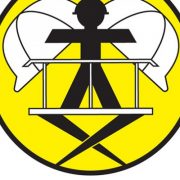EWPA Training: What to Expect
If you’ve been following this blog for a while now, you know that our number one priority is safety. Whether we’re sharing tips on preventing falls or explaining what a Yellow Card is, Force is committed to ensuring our clients know how to safely use and operate our access equipment for hire. We are proud to offer EWPA Yellow Card training for all our scissor lifts and boom lifts under 11 metres. Here’s what you can expect from EWPA training.
Background on the EWP Yellow Card
Every State in Australia has an Occupational Health and Safety Act in place that is intended to protect the health, safety and welfare of employees on the job. The OHS Act of 2000 further stipulates that all employers provide adequate training and instruction to personnel as needed to safely perform their job responsibilities. If you work in civil construction, mining, drilling, or several other industries, you’ll likely need training in Unit of Competence RIIHAN301B: Operate Elevated Work Platform.
Everywhere in Australia, the EWP Operator license, also known as the Yellow Card, is proof that you have received proper training to safely work with elevated work platforms. The representative body that works with governing agencies and the OHS Act is the EWPA: Elevated Work Platform Association. The EWPA works to ensure the training meets the needs of the highly specialised industries using EWPs. Training and licensing is based on the type of EWP you will be working with.
Training Modules
Most EWPA training sessions take about 6 hours, depending on the number of participants. There are a variety of different training and licensing options, such as:
- Scissor Lift SL
- Vertical Lift SL
- Self-Propelled Boom Lift
These are just a small handful of EWP types. Each piece of access equipment is very different and requires specific training. If you will be working with a variety of EWPs, you will need to go through multiple specialised courses.
At the Session
Your EWPA Yellow Card training will cover both theoretical knowledge and skill development. You will learn about identifying hazards and how to properly assess a situation for risk. Conducting both pre- and post-operational checks on access equipment is necessary, and you’ll learn how to do that during your training, too.
Most courses will cover fall arrest systems and how to use them properly. Making sure a harness fits and is worn correctly is crucial to safety. Just in case an emergency situation arises, your training will go over emergency procedures for a variety of different scenarios. Lastly, you’ll be trained on how to actually operate the EWP. Time is built in for demonstrations, and you’ll have an opportunity for hands-on practice, too.
Make sure to ask questions during your EWPA training! Never walk away from a training course feeling unsure about something. Safe EWP handling is only possible if the operator is 100% confident. Speak up and stay safe out there!



